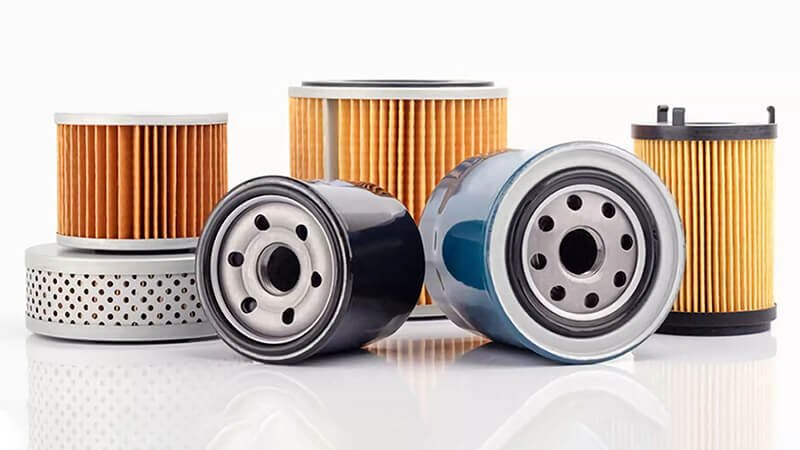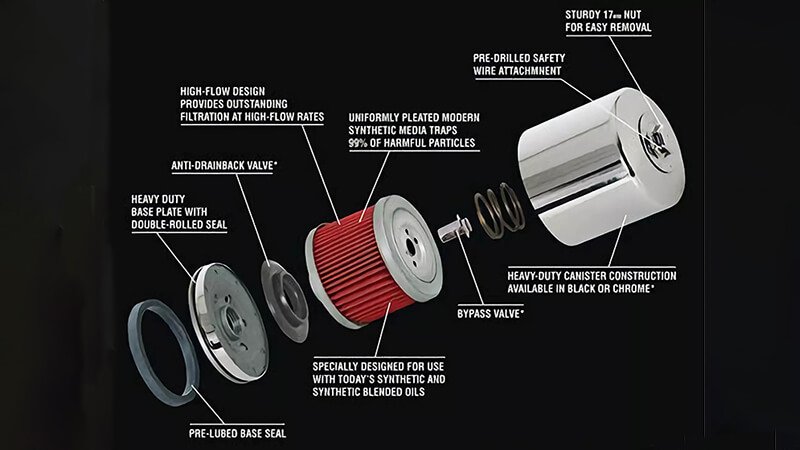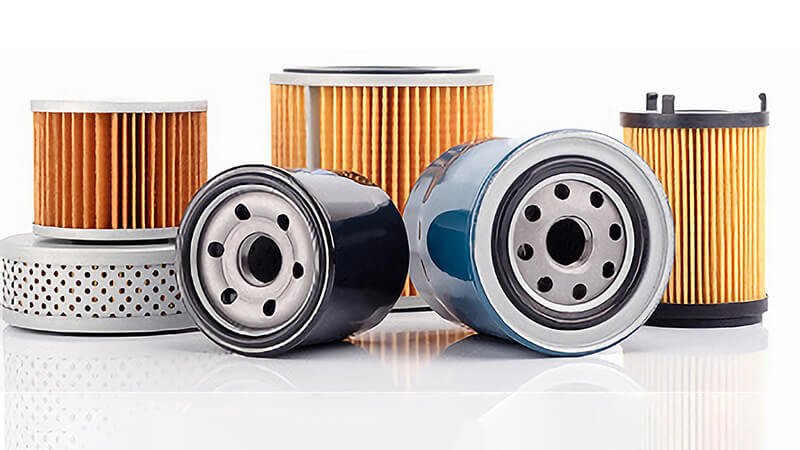When changing your car’s oil filter, a small habit can make a big difference. Many drivers overlook this simple step — yet it protects your engine and extends its life. Let’s clear up the confusion.
Yes, it’s a good idea to pre-fill a car oil filter when practical, especially for larger filters. This prevents dry starts and ensures your engine receives immediate lubrication.
Even experienced drivers sometimes skip this. But I’ve seen firsthand how pre-filling and properly prepping your oil filter can prevent costly problems. Stay with me, and I’ll show you why this small habit matters.

Do you add oil to new oil filter?
Sometimes drivers ask me this exact question. Should you add oil to a new filter? It depends on the size of the filter and how easy it is to access. But the answer is yes — when possible.
Adding oil to a new oil filter helps prevent dry starts by ensuring that the engine receives oil immediately after you start it. It’s especially helpful for larger filters that take more time to fill once the engine runs.
Why this step matters
When you change the oil filter1, the engine has to push oil through an empty filter on startup. This creates a momentary delay in lubrication. While it’s brief, repeated dry starts can wear down your engine over time.
For large auto oil filters — like those used on trucks or high-performance engines — I always recommend pre-filling2. You simply pour clean engine oil into the new filter until it is full, then install it upright. Smaller filters can be harder to pre-fill without spilling, but at minimum, you should always oil the gasket (more on this later).
One of my loyal customers once had a persistent engine rattle after oil changes. It turned out their old supplier never pre-filled their oil filters. After switching to us and following this simple advice, the problem disappeared — and their engine runs smoothly to this day.

Do you have to pre-fill a fuel filter?
Fuel filters are a different story. They serve a different purpose than oil filters, so the process is not exactly the same.
Pre-filling a fuel filter is generally not required unless your vehicle’s service manual specifically instructs it. Modern fuel systems are designed to purge air automatically. However, in some diesel engines, pre-filling the fuel filter can help avoid hard starting.
Consider the system
Fuel filters catch contaminants before fuel reaches your engine. In most modern gasoline engines, you do not need to pre-fill the filter — the fuel pump will fill it during priming. But for diesel engines, air trapped in the system can cause starting problems. In that case, pre-filling is a smart move.
I always advise customers to check their vehicle’s manual3. If you are servicing a diesel engine, especially on heavy equipment or commercial vehicles, pre-filling the fuel filter4 can save you from a frustrating no-start situation.
In contrast, oil filters protect your engine’s lubrication system5. Oil is thicker than fuel, and it takes more time to reach critical components. That’s why pre-filling an oil filter has greater impact on preventing wear.

How should a new oil filter be prepared before installation?
If you want your new oil filter6 to do its job properly, preparation is key. Skipping these steps can cause leaks or even engine damage7.
To prepare a new oil filter: 1) Pre-fill it with clean oil if possible; 2) Lightly oil the rubber gasket; 3) Make sure the old gasket is removed; 4) Tighten the filter according to manufacturer instructions.
Simple steps, big impact
Let’s break it down:
Pre-fill the filter
For large filters, add clean oil inside. This reduces the time your engine runs without full oil pressure on startup.
Oil the gasket
Use your finger to apply a thin layer of clean oil to the new filter’s rubber gasket. This helps it seal properly and prevents the gasket from sticking the next time you remove the filter.
Remove the old gasket
Double-check that the old filter’s gasket8 didn’t stick to the engine. Installing a new filter on top of an old gasket causes leaks.
Tighten by hand
Most filters should be installed hand-tight. Over-tightening can damage the gasket or the filter housing.
I once had a customer who repeatedly struggled with oil leaks after changes. The culprit? They weren’t oiling the gasket, which caused it to tear on installation. Once they started prepping the filter correctly, the leaks stopped.

Why do you apply oil to the oil filter seal before installing it?
This is one of the simplest — yet most overlooked — steps in an oil change. Many drivers forget it, but it makes a real difference.
Applying oil to the oil filter seal ensures a proper seal, prevents the gasket from tearing, and makes the filter easier to remove during the next oil change.
Small habit, big payoff
The gasket on a new oil filter9 is a rubber ring that forms a tight seal against the engine. If installed dry, the gasket can twist, tear, or fail to seat properly. This can lead to oil leaks10 and even catastrophic engine damage if the seal gives out.
By lightly oiling the gasket, you allow it to glide smoothly into place. It also prevents the gasket from sticking to the engine during the next removal. This simple habit can save you time, frustration, and money.
I’ve seen cases where improperly installed filters caused severe oil loss on the highway. One driver learned this the hard way — after an oil change, their filter seal failed due to a dry gasket11. They needed a new engine. Since then, they’ve never skipped this step.

Conclusion
Prepping an oil filter12 properly is a small task with big rewards. Pre-fill it when possible to avoid dry starts. Always oil the gasket to ensure a proper seal and trouble-free removal. While fuel filters don’t always require pre-filling, check your manual — especially for diesel engines. Taking the time to follow these simple steps will protect your engine, extend its life, and give you peace of mind.
-
Learn about the vital role of oil filters in engine performance and longevity. This resource will enhance your knowledge and maintenance skills. ↩
-
Understanding pre-filling can help you maintain your engine's health and prevent costly repairs. Explore this resource for detailed insights. ↩
-
Your vehicle's manual contains crucial information for proper maintenance, helping you avoid costly repairs and ensuring safety. ↩
-
Understanding the benefits of pre-filling can help you avoid starting issues with diesel engines, especially in heavy equipment. ↩
-
Learn how oil filters work to maintain engine health and prevent wear, ensuring your vehicle runs smoothly. ↩
-
Understanding the best practices for oil filter installation can help prevent leaks and engine damage. Explore this resource for expert tips. ↩
-
Learn about the common mistakes that can lead to engine damage during oil filter changes and how to avoid them. ↩
-
Proper installation of a rubber gasket is crucial for preventing leaks. This resource will guide you through the correct process. ↩
-
Understanding proper oil filter installation can prevent costly engine damage and ensure your vehicle runs smoothly. ↩
-
Identifying causes of oil leaks can help you take preventive measures and avoid expensive repairs in the future. ↩
-
Learning about gaskets can help you appreciate their role in engine performance and maintenance, ensuring longevity. ↩
-
Know different kinds of auto oil filter from Runex, and clicking this link to get the best products for your business. ↩













